| Dan Howard |
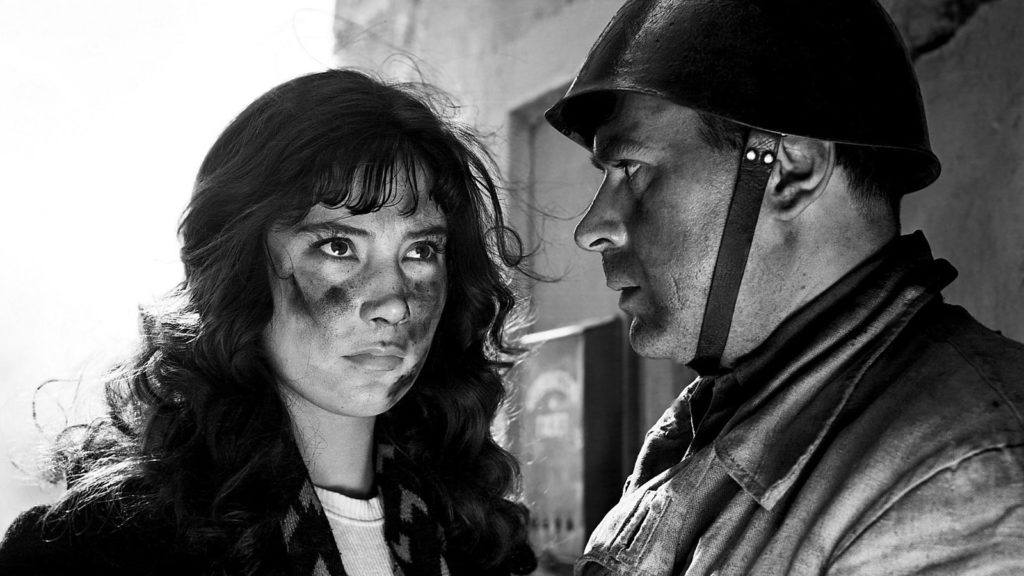
The Cranes Are Flying plays at the Trylon Cinema from Friday, March 3 through Sunday, March 5. Visit trylon.org for tickets and more information.
With every generation, a film comes around that provides a fresh new take on a genre. Most war films aren’t of interest to me, but when we leave the trenches (or spend little time in them) and the battlefield, we see different sides of war that we wouldn’t expect. Full Metal Jacket (1987), Ran (1985), even Guillermo del Toro’s Pinocchio (2022) achieve this with tremendous success. However, very few reach such personal and layered depth as Mikhail Kalatozov’s masterwork The Cranes Are Flying (1957). This film is a haunting and memorable story of love, loss, and finding your way back out of the dark and unknown.
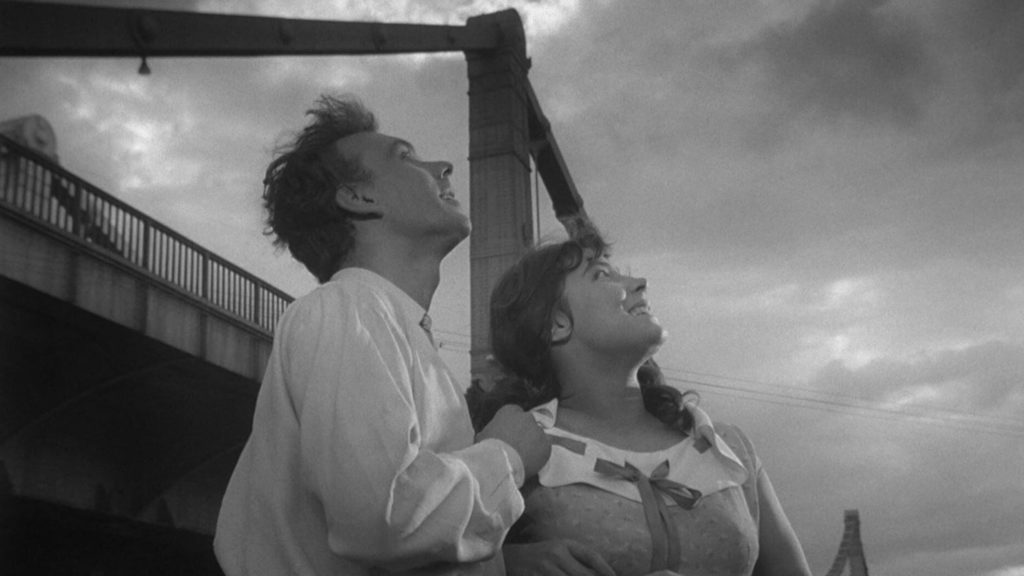
Set in Moscow during WWII in 1941, The Cranes Are Flying follows the story of two young lovers, Boris and Veronika, engaged to be married and deeply hopeful for their future. Their lives come to a halt when Boris volunteers to fight in the war. While the two are separated, we see a chain of events unfold that leaves Veronika emotionally destroyed and making choices that lead her into a deep despair while we see how Boris fares as a soldier. Despite her misfortune, Veronika maintains an unshaken hope that Boris will return. I will not pretend to know the horrors of war, and I’m thankful to live in a time and place where war is not at my doorstep, but Kalatozov manages to make the viewer feel every bit of the horrors of war in the film and the decisions individuals make when facing such grim times.
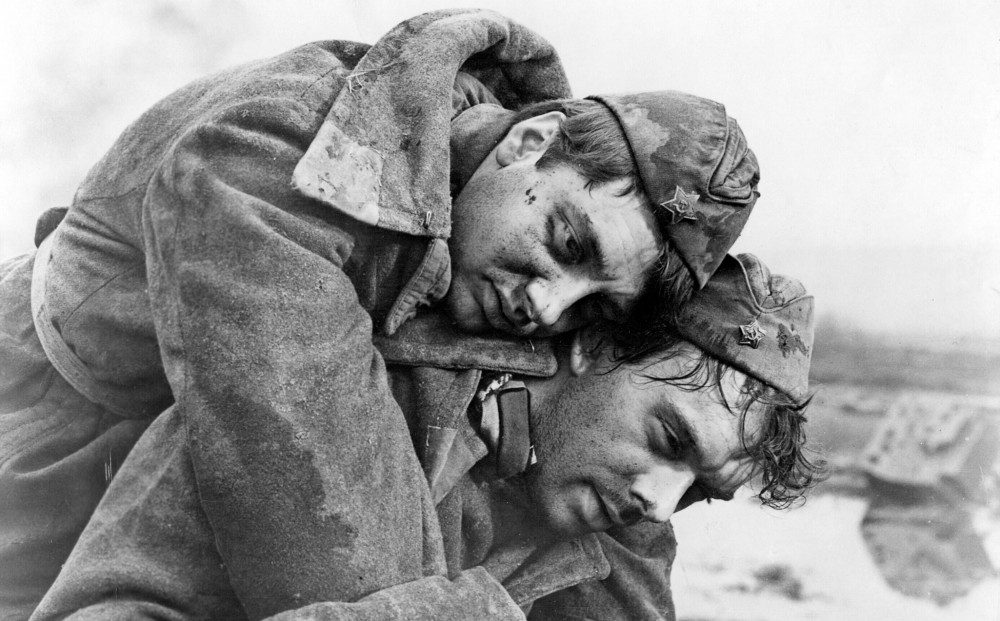
What is brilliant about The Cranes Are Flying is its masterful turning of the tone on a dime. With its stunning cinematography throughout—both in the city and on the front lines (be on the lookout for a scene in the woods which I consider to be one of the most beautifully shot sequences in cinema)—and its beautifully crafted musical score, we see how the world of this Russian town is before the war, and how quickly their lives change during it. We see all these characters adapting to a destructive period, even losing the very lives they had once known and loved, trying to figure out how to best help and survive.
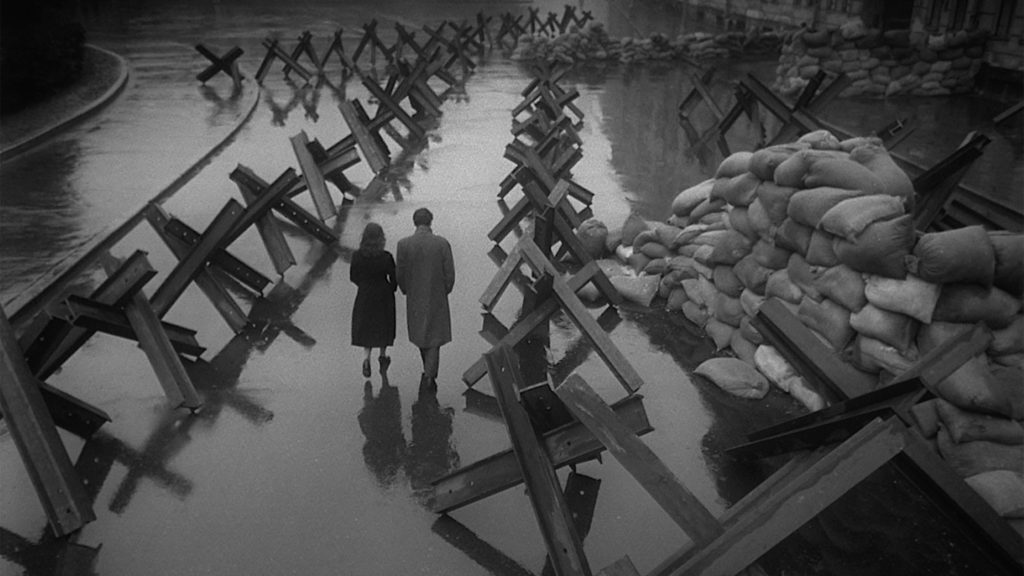
While the film is indeed a dark story, we witness the full journey of a character’s melancholy and depression and their loss of true self while feeling the weight of decisions made in the face of uncertainty. The guilt that they feel rubs in your face—both directly and indirectly—and shows that you can best overcome these feelings not alone, but with the help of the loved ones around you.
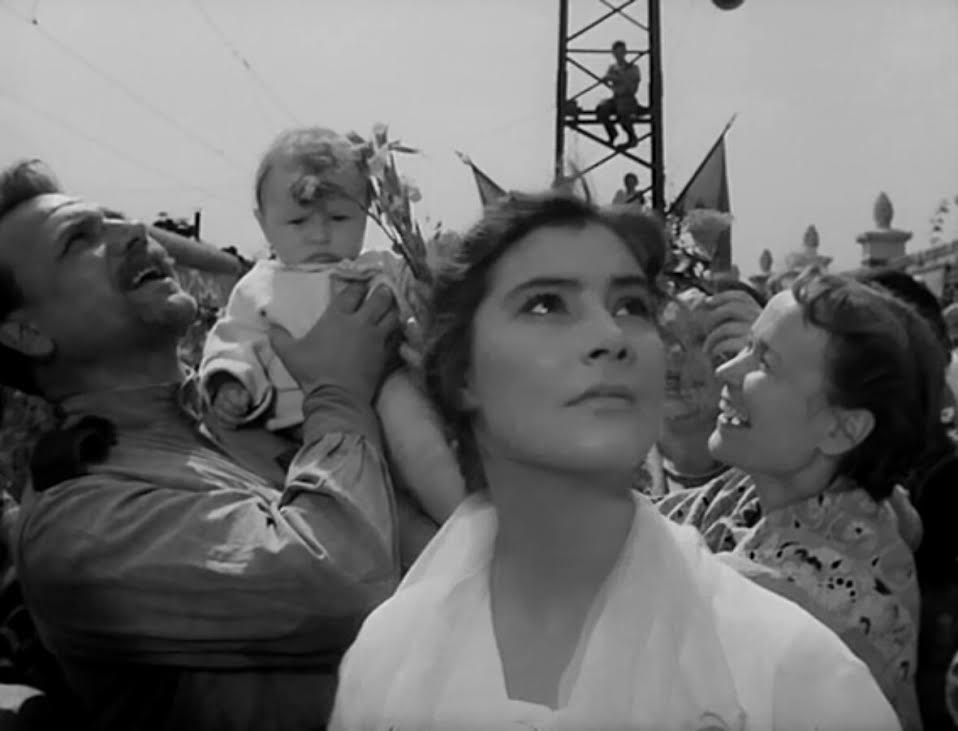
I found the film incredibly moving from start to finish with no shortage of humanity’s capacity for love on display. With its bittersweet ending, The Cranes Are Flying proves to be a timeless classic that generations can relate to even now, over 65 years on. Veronika and Boris’s story is an unforgettable tale. Not only one of the great love stories of our time, but also one of the greatest war films ever made. Kalatozov’s genius shines its brightest with The Cranes Are Flying.
Edited by Olga Tchepikova-Treon

What a beautifully written review. It definitely makes me want to see this amazing film.